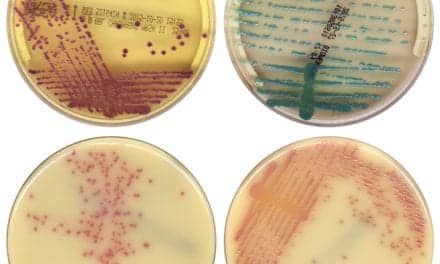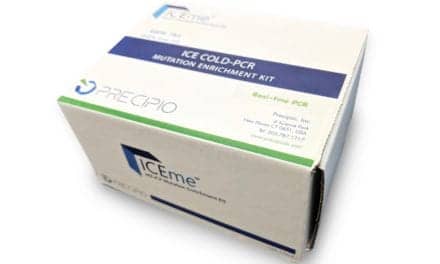Myriad Genetics Inc, Salt Lake City, has presented key results from a large, prospective process-intervention study that evaluated genetic testing practices in community obstetrics and gynecology settings.1 The study found that 23.8% of patients were qualified to undergo genetic testing based on National Comprehensive Cancer Network (NCCN) guidelines, while 5.5% of patients who underwent testing were found to carry a pathogenic mutation.
“Myriad is committed to helping obstetricians and gynecologists incorporate genetic testing into their practices and helping expand patients’ access to personalized medicine,” says Royce (Terry) Adkins, MD, FACOG, a board certified ob-gyn physician and vice president of medical affairs at Myriad Genetic Laboratories. “Importantly, this study found that process-intervention strategies and the myRisk hereditary cancer test can help doctors find women at increased risk of hereditary breast and ovarian cancers so that steps can be taken to lower their risk.”
The study evaluated the affects of incorporating routine hereditary cancer risk assessment, counseling, and follow-up genetic testing in the community obstetrics-gynecology practice setting. The trial included two large obstetrics-gynecology practice groups in two states with five practice sites. The process intervention included baseline process assessment, refinement of clinic-specific patient screening workflows, and tools and training in hereditary cancer risk screening and follow-up. Outcomes related to hereditary cancer screening and testing were measured during an 8-week postintervention period. Patients and providers were also surveyed about their satisfaction with the process.
Among the 3,811 women who were screened for hereditary cancer risk in the study, 39% agreed to undergo genetic testing with the myRisk Hereditary Cancer test, which found pathogenic mutations in more than 5% of the women tested.
Among the patients referred for genetic testing, 98.8% were able to understand the information provided, and 97.6% were satisfied with the overall process. All of the healthcare providers who participated in the study said they would continue to use the established hereditary cancer risk assessment process.
“This study demonstrates that it is feasible and beneficial to incorporate hereditary cancer screening, education, and testing into community obstetrics-gynecology practices,” says Mark DeFrancesco, MD, study investigator and managing partner at Westwood Women’s Health, a division of Women’s Health Connecticut. “Patients and providers were satisfied, and integrating multigene panel testing in this setting identified patients with significant cancer risks who would not otherwise have been identified.”
For more information, visit Myriad Genetics.
Reference
- DeFrancesco M, Waldman N. Hereditary cancer genetic testing in community-based obstetrics and gynecology settings. Poster presented at the annual meeting of the American College of Obstetricians and Gynecologists, Austin, Tex, April 28, 2018. Available at: https://bit.ly/2xYI17f. Accessed June 8, 2018.





